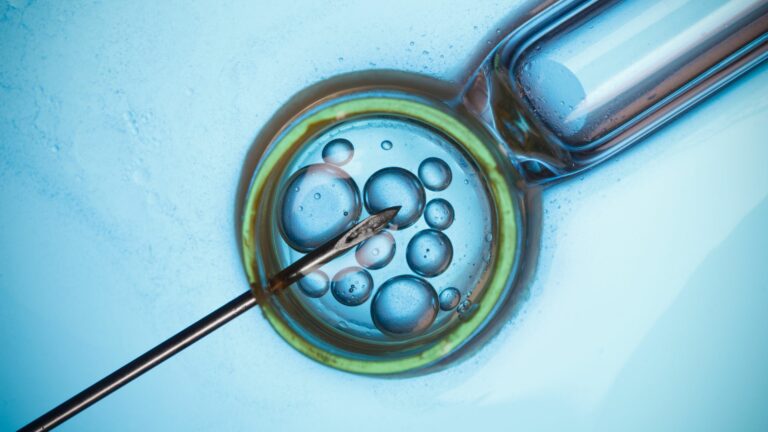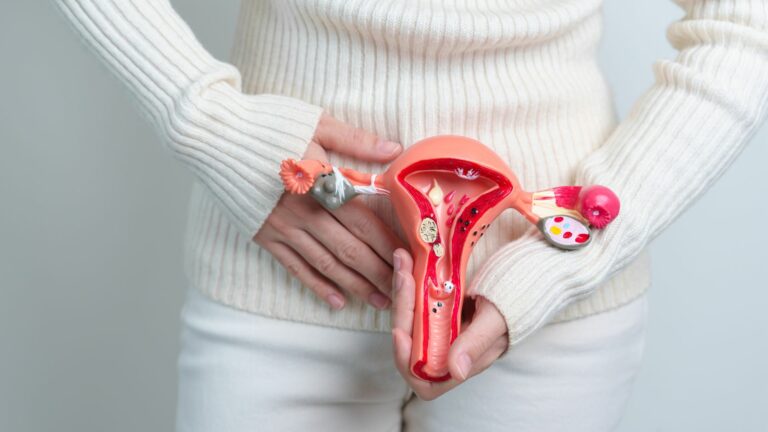
Optimizing your home environment is a key part of supporting your fertility and increasing your chances of conceiving.
Many common household products contain endocrine-disrupting chemicals (EDCs) that can negatively impact reproductive health.
By making some simple changes and swaps, you can significantly reduce your exposure to these harmful toxins and create a haven that nurtures your fertility.
Key Takeaways
| Insight | Explanation |
|---|---|
| Hidden toxins in the home can harm fertility | EDCs in plastics, cleaning products, cosmetics, and other items disrupt hormones |
| Air and water quality matter | Indoor air pollution and contaminated drinking water are sources of fertility-damaging toxins |
| Natural alternatives support fertility | Swapping to non-toxic cleaners, organic products, and glass food storage makes a difference |
| Stress management is environmental care | Creating a relaxing home sanctuary and managing stress benefits reproductive health |
| Small sustainable changes add up | You don’t have to overhaul your whole home – consistent non-toxic choices have an impact |
Hidden Fertility Saboteurs Lurking in Your Home
You may be surprised to learn that many everyday items in your house contain chemicals that can throw your hormones out of balance and undermine your fertility. Some of the biggest offenders include:
- Plastics, especially those labeled #3 (PVC), #6 (polystyrene), and #7 (often contains BPA). These plastics can leach EDCs into food and drinks.
- Harsh cleaning products with fragrances, bleach, ammonia and other irritants. The fumes and residues left behind disrupt the endocrine system.
- Cosmetics and personal care items containing parabens, phthalates, triclosan, and synthetic fragrances which are known hormone disruptors.
- Pesticides and herbicides used in yard and garden care. Tracking residues indoors on shoes exposes you even if you don’t directly handle them.
- Flame retardants in furniture, carpets, and electronics have been linked to fertility struggles.
So what’s the solution? Awareness is the first step. Start reading labels carefully and replacing problematic products with non-toxic alternatives as you can. Every swap makes a difference.
Reflection Question: What are 1-2 simple product swaps you could make this week to reduce EDCs in your home?
The Invisible Threat: How EDCs Accumulate in Your Home
It’s not just direct exposure to concerning products that matters – EDCs build up in your home environment over time too:
- EDCs bind to dust particles, so regular cleaning (with non-toxic products!) is important to minimize exposure through the air you breathe.
- Poor ventilation traps EDCs inside. Opening windows and using an air purifier helps clear the air.
- New furniture, carpets, and paint can “off-gas” EDCs as they are first installed. If possible, look for products with low VOCs or allow them to off-gas before bringing them indoors.
While you can’t eliminate EDCs entirely, you can meaningfully reduce your body burden through the choices you make at home, supporting your fertility in the process.
Simple Swaps for a Healthier, More Fertile Home
Transitioning to a fertility-friendly home environment doesn’t have to involve a total overhaul. Here are some easy changes to get started:
Natural Cleaning Solutions
You can harness the power of common pantry ingredients to clean your home without harming your health.
For example:
- All-purpose cleaner: Mix equal parts white vinegar and water, plus a few drops of essential oil if desired.
- Glass cleaner: Combine 1/4 cup each white vinegar and rubbing alcohol, 1 tablespoon cornstarch, and water in a spray bottle.
- Furniture polish: Blend 2 tablespoons olive oil with 1 tablespoon lemon juice for a natural shine.
For those who prefer pre-made options, look for plant-based, fragrance-free cleaners from brands like Branch Basics, Seventh Generation, and Ecover.
Safe Food Storage
Replace plastic food containers and water bottles with glass or stainless steel options. For drinks on the go, choose a reusable non-plastic bottle.
If you do use plastic occasionally, hand wash it to avoid degrading the surface.
Clean Beauty
Check the Environmental Working Group’s Skin Deep Database to assess the safety of your personal care products.
Prioritize items free from parabens, phthalates, and synthetic fragrances. The Think Dirty app is also helpful for scanning product barcodes while shopping.
Remember, progress is more important than perfection here. Focus on what you can control and improve over time without stressing about achieving a 100% toxin-free life.
Actionable Tip: Do a quick audit of one area of your home (like under the kitchen sink or in the bathroom cabinet) and choose 1-2 easy product swaps to make.
Breathe Easy to Conceive Easy: Air Quality Matters
Indoor air can be more polluted than outdoors, and breathing contaminated air affects fertility in both women and men:
Risks for Women
Studies show that airborne pollutants have been linked to:
- Irregular menstrual cycles
- Decreased ovarian reserve
- Poorer IVF outcomes
Risks for Men
Exposure to air pollution can:
- Lower sperm count
- Reduce sperm motility
- Damage sperm DNA
Risks for Both
Breathing polluted air can also increase the risks of miscarriage and developmental issues for offspring conceived.
Solutions for Cleaner Air
So what can you do? Here are some top tips:
- Use an air purifier with a HEPA filter to trap particles and VOCs.
- Ventilate your home for at least a few minutes daily, even in winter.
- Swap synthetic air fresheners for essential oil diffusers or simmering aromatics.
- Harness the power of houseplants! Spider plants, snake plants, and peace lilies excel at purifying the air.
Reflection Question: How could you improve the air quality in your bedroom to support fertility while you sleep?
Find Your Calm: Stress Management Supports Fertility
Your emotional well-being matters just as much as your physical environment when trying to conceive.
The mental toll of fertility struggles can be heavy, and chronic stress disrupts reproductive hormone balance in both women and men:
- For women, stress can interfere with ovulation, cervical mucus production, and libido.
- In men, high stress levels can lower testosterone, impair sperm production, and reduce sperm quality.
The good news is that actively caring for your mental health and creating a peaceful home sanctuary can serve as a “secret weapon” on your fertility journey.
Design a Relaxation Zone
Choose a cozy corner of your home to dedicate as a relaxation space. Fill it with plush pillows, soft blankets, candles or an essential oil diffuser, and soothing music.
Having a special stress-free zone to retreat to can make a big difference.
Embrace Gentle Movement
Mindful exercise like yoga and tai chi emphasize breathwork, which calms the nervous system. Look for fertility-focused yoga routines that promote circulation to the reproductive organs.
Even simple stretching while taking deep belly breaths can quickly lower stress.
Prioritize Quality Sleep
Getting adequate sleep (7-9 hours for most) is essential for balanced hormones and conception.
Establish a relaxing pre-bed routine like taking a warm bath, sipping chamomile tea, reading an uplifting book, or writing in a gratitude journal.
Actionable Tip: Schedule a 10-minute “relaxation break” into your daily calendar this week. Commit to using that time to do a calming activity in your new sanctuary space.
Your Fertility-Friendly Home: Additional Considerations
To further customize your home for optimal fertility, consider these factors:
Minimize Close Exposure to EMFs
Some studies indicate that prolonged close exposure to electromagnetic fields (EMFs), like from cell phones kept in pockets, may impact sperm quality.
Practice precaution by carrying your phone elsewhere and using speakerphone or headphones for long chats.
Filter Your Water
Depending on where you live, your drinking water may contain trace levels of fertility-disrupting toxins and heavy metals. An under-sink or pitcher-based water filter can provide peace of mind.
Make Dietary Shifts
While not directly tied to your physical home environment, the food you bring into and prepare in your home influences your fertility too. Some tips:
- Prioritize whole, unprocessed, organic foods
- Minimize refined sugars and carbohydrates
- Limit caffeine to 1-2 servings per day
- Avoid alcohol while trying to conceive
Small improvements in fertility-friendly eating can yield big results over time. For more personalized guidance, consult with a reproductive nutritionist or dietician.
The Bottom Line
Creating a fertility-friendly home environment is a process, not a destination. Every positive change you make is a meaningful step towards supporting your reproductive health and your goal of building a family.
Give yourself grace, celebrate your wins along the way, and remember that these improvements will continue benefiting you long after conceiving too. Your home can become a true haven.
For personalized guidance and support on your fertility journey, explore these resources in your area:






